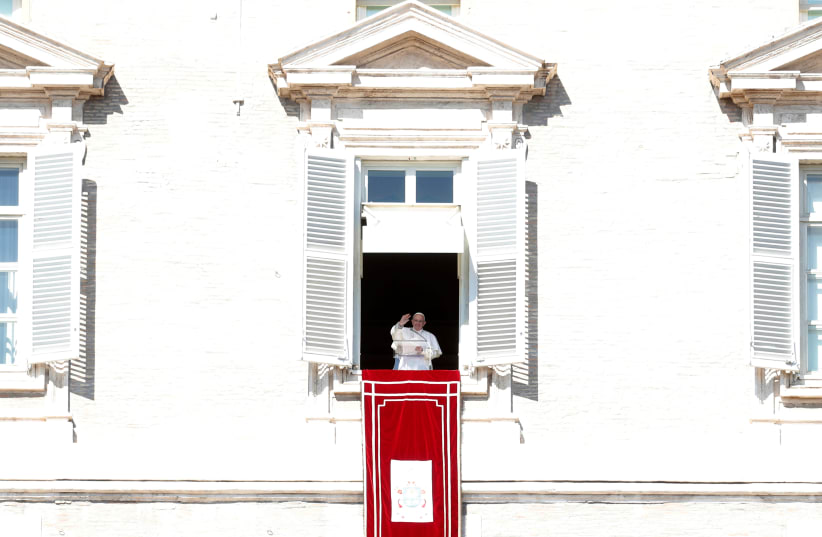Pope Francis announced on Monday that documents from the Vatican secret archive regarding the Pope Pius XII’s actions during the Holocaust era will be open to scholars in March 2020 to help shed light on the controversial period for the Vatican and the Catholic Church.
Pius XII has long been criticized by Jewish organizations for failing to do enough to stop the Nazi genocide during World War II and for failing to speak out amid the horrors of the Holocaust.
However, Catholic leaders have pointed to certain actions taken by Pius and other Catholic clergy in assisting European Jews as evidence of efforts that were made at the time. They argued that broad action by the Catholic Church could have resulted in severe reprisals against Catholics in Europe by the Nazi regime.
On Monday, Pope Francis said that Pius XII had guided the Catholic Church “in one of the saddest and darkest moments of the twentieth century,” and that he had sometimes been criticized in an “exaggerated” manner.
He said that Pius XII’s actions had been studied in depth and “sometimes discussed” with “prejudice or exaggeration.”
The pontiff said that the opening of the archives would allow “serious and objective historical research” to “evaluate, in the proper light and with appropriate criticism, the praiseworthy moments of the Pontiff and, without any doubt, also moments of serious difficulties, of tormented decisions,” which he may have seemed to some as “reticence” but were attempts to keep humanitarian initiatives alive.
Rabbi David Rosen, the International Director of Inter-religious Affairs for the American Jewish Committee (AJC), said that he hoped the Vatican’s archival documents from the Holocaust era will provide a clearer picture of Pope Pius XII’s actions.
The documents are expected to include various letters and messages between the pope and other Vatican officials at the time, with Catholic clergy throughout Europe.
Communications between the Vatican with pious Catholics who served as senior military or government officials, and with Catholics of lesser rank who may have provided reports of various kinds to church officials, may also be included.
Rosen said that the new documentation could be crucial in providing greater clarity regarding Pius XII’s activities during the Holocaust.
“The hope is that making all the materials accessible for objective scholarly review will give us a clearer picture,” said the rabbi, who noted it was the right thing to do.
The previous pontiff, Pope Benedict XVI had indicated shortly before he retired that he wished to open the Holocaust-era archives, while Pope Francis’s personal understanding of the Jewish community was also likely a factor, said Rosen.
Prefect of the Vatican Secret Archives Bishop Sergio Pagano also reportedly requested time to catalogue the large amount of documents before their release. Rosen also noted that the AJC itself has been raising the issue with the Vatican for the past 30 years.
Holocaust historian and head of the Simon Wiesenthal Center in Israel Dr. Efraim Zuroff noted that Pius XII never specifically denounced the Nazi persecution and the mass murder of European Jews, or called on Catholics to help save Jews from persecution.
Zuroff said that “two cardinal questions” needed to be answered regarding Pius XII’s papacy.
“The first is what information reached the Vatican regarding Holocaust crimes, and the second is when did that information reach Pius XII?” asked Zuroff.
He pointed out that papal nuncios of the Vatican who served as ambassadors were active in many countries where Jews were persecuted and murdered, and that he would have received “accurate information regarding the fate of the Jews… at a relatively early date, most probably before such news reached the Allies.”
